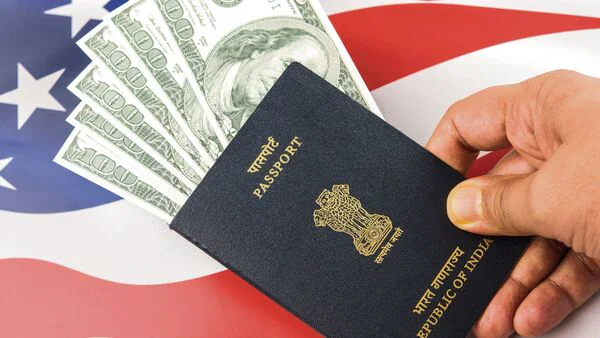The United States has launched a strong crackdown on automated bots that have been causing major headaches for people in India trying to book visa interview appointments. These bots, used by some agents, have been snapping up appointment slots and forcing applicants to pay hefty fees—between Rs 30,000 and Rs 35,000 per person—just to secure a spot for their U.S. visa interviews. This has made the process unfair and stressful for many, especially students and business travelers who need timely appointments.
On Wednesday, the U.S. Embassy in India took action and announced on X (formerly Twitter) that it had canceled around 2,000 visa appointments that were booked using these bots. In a clear message, the embassy stated, “Consular Team India is cancelling about 2,000 visa appointments made by bots. We have zero tolerance for agents and fixers who violate our scheduling policies. Effective immediately, we are cancelling these appointments and suspending the associated accounts’ scheduling privileges.” This means not only are the appointments gone, but the accounts linked to these bots can no longer book slots.
The embassy also promised to keep fighting fraud, saying, “We will continue our anti-fraud efforts. We have zero tolerance for frauds.” This step is part of a bigger effort to make the visa process smoother and fairer for everyone.
Why This Matters
Getting a U.S. visa appointment in India has become a big challenge in recent years. Whether it’s for a business or tourist visa (called B1/B2) or a student visa, people often have to wait months—sometimes over six months—for an interview slot. This long delay has been a problem for students needing to join universities in the U.S. or professionals planning business trips.
Empanelment for Speakers, Trainers, and Cyber Security Experts Opens at Future Crime Research Foundation
However, some agents have found a way around this by using bots—computer programs that quickly grab appointment slots as soon as they become available. These agents then sell the slots to desperate applicants at high prices, making it nearly impossible for regular people to book appointments on their own through the official U.S. visa website.
One parent, who didn’t want their name shared, told about their struggle: “We tried to get a visa interview date for our child who was supposed to start at an American university last fall, but there were no slots available in time. We ended up paying an agent Rs 30,000, and they got us an appointment when we needed it.” Stories like this show how common this problem has become.
How the Bots Work
According to people in the travel industry, these bots are designed to monitor the U.S. visa appointment system 24/7. The moment a slot opens up, the bots book it instantly—faster than any human could. Agents then hold onto these slots and sell them to applicants willing to pay extra. This has created a kind of “black market” for visa appointments, leaving many honest applicants stuck with long wait times while others who can afford to pay jump the line.
For example, while the official wait time for a B1/B2 visa interview is currently over six months, those who pay agents Rs 30,000-Rs 35,000 often get a slot within a month. This has frustrated regular applicants and raised concerns about fairness.
Now Open: Pan-India Registration for Fraud Investigators!
A Growing Problem
The issue of long visa wait times isn’t new. Back in 2023, the wait for a B1/B2 visa in India stretched to nearly 999 days—almost three years! It was so bad that the U.S. allowed Indian applicants to book appointments at its consulates in Frankfurt, Germany, and Bangkok, Thailand, to help clear the backlog. India had also raised this issue with the U.S. government two to three years ago, asking for faster processing. Since then, the U.S. has taken steps to improve the situation, and this latest crackdown on bots is another big move in that direction.
What’s Next?
By canceling these 2,000 bot-booked appointments and banning the related accounts, the U.S. Embassy hopes to free up slots for genuine applicants. This could shorten wait times and make the system more accessible to people who don’t want to—or can’t—pay agents. The embassy’s tough stance also sends a warning to agents and “fixers” that such practices won’t be tolerated.
For now, applicants are hopeful that this action will bring some relief. With the U.S. continuing its anti-fraud efforts, there’s a chance that visa processing in India could become faster and fairer in the coming months. Until then, those planning a trip to the U.S. are advised to book early and avoid relying on agents who promise quick fixes for a high price.


